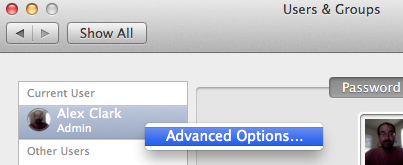A very long time ago (read: ten years ago), we were in-between the so-called First and Second Browser Wars. Internet Explorer had killed Netscape Navigator by taking advantage of their desktop monopoly and Scrooge McDuck-like financial reserves to install a free copy of Internet Explorer on every single computer in the world (basically). Internet Explorer […]
Category: Data Analytics
Requests’ Two APIs
Kenneth Reitz’s excellent Requests library has been praised, rightfully, for its excellent API. In fact, its API is so good that it’s been praised in a literary context, as well as by almost every programmer who has come across it. There is no question that this API is one of the best you can find […]
LibreQDA public release
A news worthy of The Tryolabs’ Herald: We have just proudly released to the public LibreQDA, a Qualitative Data Analysis tool that we have developed alongside with the Universitat Autónoma de Barcelona and the Universidad de la República Oriental del Uruguay. LibreQDA is what is commonly know in the psychology area as Computer Assisted Qualitative Data […]
collectr: Static File Management for All Of Us
A little while ago I wrote a blog post talking about Git hooks. As an example in that post I wrote a post-commit hook that would minify and upload my static files to S3. This has spiralled a little bit out of control since then, and I finally drew the line at maintaining that script. […]

I Love Checkoutmanager and Dotfiles
An ode to my OS X development workstation setup [1] I am big on setting up my development environment, and enjoying the environment I work in. And I’m very thankful to the folks who make my life easier, including the authors of: Python: Python Core Developers dotfiles: Jon Bernard checkoutmanager: Reinout Van Rees I also […]

Python 3 Porting
The 3 in 2013 is for Python 3 I tend to like projects that everyone else hates, e.g.: Removing persistent Python objects associated with missing classes in ZODB. Making new releases for old software that is still useful but unmaintained. Running flake8 on 10s or 100s of source files and hand-fixing the results. Part of […]
Choosing The SSL Version In Python Requests
Over the last few months (and probably for quite a while before then too), a few issues have been raised on the Requests GitHub page asking how to select the version of SSL used by Requests. This is actually simple once you know how, so I thought I’d write a short post to show you […]
Writing A Transport Adapter
Last post I briefly mentioned that Python Requests went v1.0. This involved a huge code refactor and a few changes in the API. One of these changes was the inclusion of something Kenneth (and others) have been thinking about for a while as part of the future of Python HTTP ‘project’. This something is the […]
Not All Opinions Are Equal
This blog post is a reaction to this blog post by David Hansson. If you have the time, I highly recommend reading it. If you don’t, I’ll summarise the most relevant bits as I go. Having Things Your Way David Hansson has recently written a blog post about Rails, and in particular about how Rails […]
Sorry for the blog spam
Just learning Pelican As I’m just learning Pelican, Dirkjan Ochtman pointed out that I can have “fancy” URLs via the ARTICLE_PERMALINK_STRUCTURE setting. So the blog spam you are seeing is a result of my publishing the same two articles with two different URLs (fancy and non-fancy). My apologies for the noise. publishconf.py And actually, I […]

Yup, This Blog is Now Powered by Pelican
As an open source “Plone guy”, I’m always prepared to defend and explain my choice to not use Plone for blogging. As an open source “Plone guy”, I’m always prepared to defend and explain my choice to not use Plone for blogging. A couple years ago, I started using WordPress in order to learn its […]
A Whistlestop Tour of Python Requests
Return to our regularly scheduled technical blogging, I’m going to give a quick overview of one of the software libraries I know best: Kenneth Reitz’s Requests library for the Python programming language. Since I started making minor (and I mean really minor) contributions to the library, I’ve become increasingly familiar with its use and utility, […]
Let’s Build A Fileserver!
Those of you who know me will be familiar with the fact that I am what could be called a ‘digital packrat’. After a few years of university my DVD/Blu-Ray collection has expanded to the point that it fills multiple shelves, and I have digitised the whole thing. This has turned into a more than […]
The Importance of API-Oriented Design
Many programmers (or coders, or software engineers, or computer wizards, or whatever term you would like to use; the arguments had over this could and probably will fill a whole blog post on their own) find themselves involved to a greater or lesser extent in the development of libraries and programming utilities for the use […]
Connecting to a Microsoft SQL Server database from Python under Ubuntu
Free tools are great, but the world ain’t all sunshine and rainbows. Sometimes, we may need to connect to a Microsoft SQL Server database from one of our Python applications running under Linux. Fortunately, there are ways to achieve this. I am assuming we got this: A Microsoft SQL Server installation running under Windows. I […]